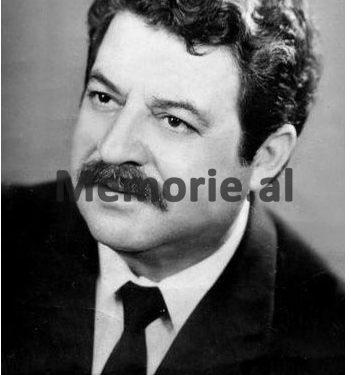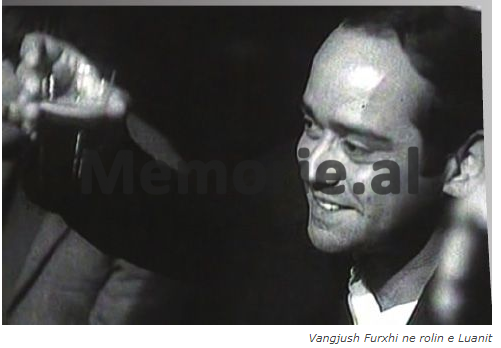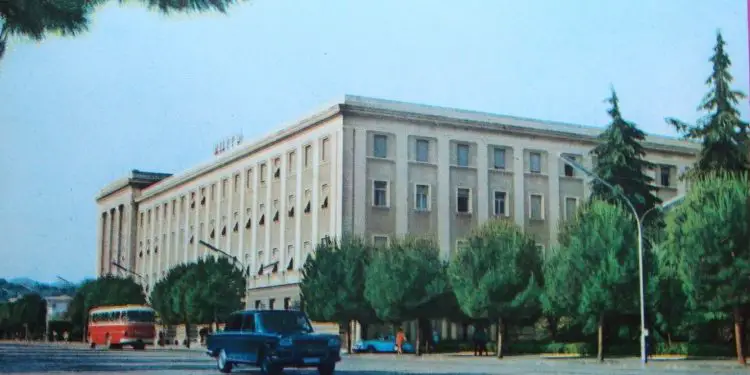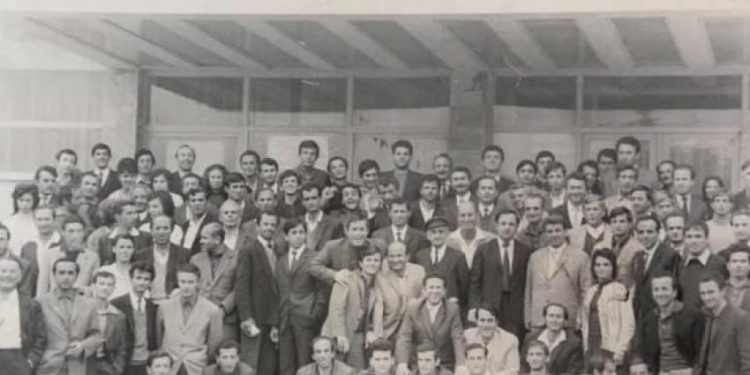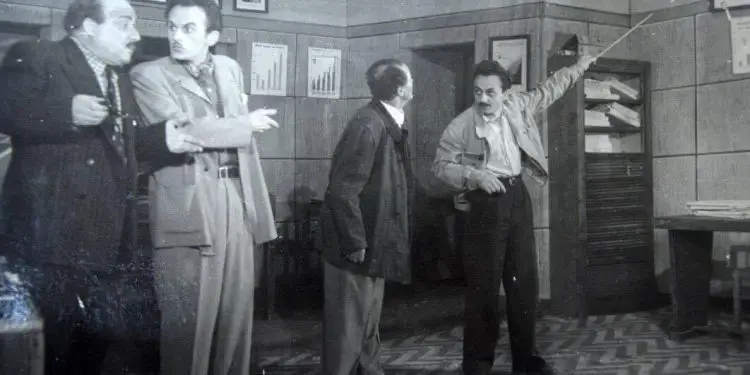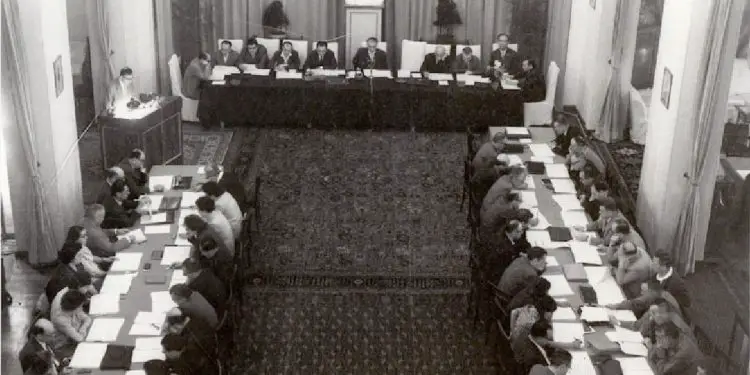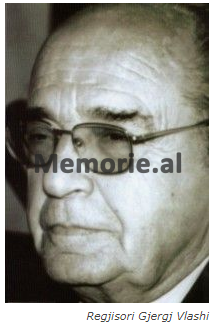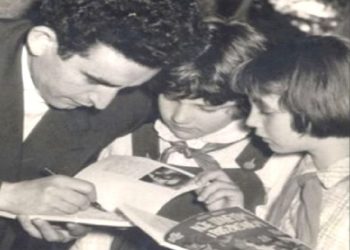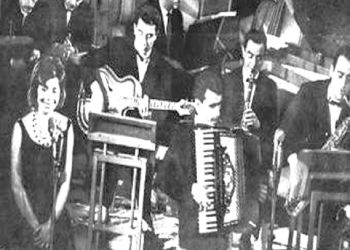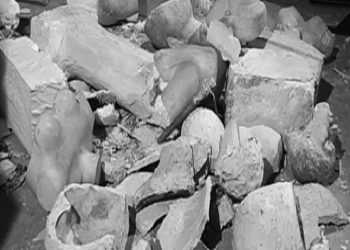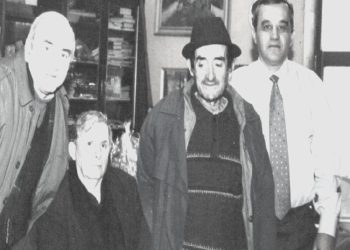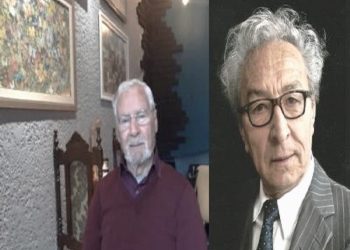Dashnor Kaloçi
The third part
Memorie.al publishes the unknown story of the drama “Brown Spots” by playwright Minush Jero, which was first staged by renowned director Mihallaq Luarasi, at the “Andon Zako Çajupi” Theater in Korça where he won the cup of the festival of dramatic theaters and was considered superlative by the then Prime Minister, Mehmet Shehu, but sometime later when she appeared on the stage of the People’s Theater in Tirana, where Enver Hoxha himself was in the lodge, she was criticized and hit by him, as a drama where the working class force did not come out and the micro-bourgeois sentiments dominated ”etc. All the words of Enver Hoxha held at the meeting of the Secretariat of the Central Committee of the ALP, where he ‘crossed’ that part and its authors, calling them ‘stained people’ as well as the discussions of the officials of the Ministry of Education of Culture, such as Miho Gjini, etc., and directors and actors of the Theater “Aleksandër Moisiu” of the city of Durrës, such as: Spiro Urumi, Gjergj Vlashi, Nikolin Xhoja, Llazar Ziu, etc., who issued harsh accusations against their colleagues who had interpreted in that part, as well as the self-criticism of the playwright Minush Jero and the director, Luarasi, after the ‘lightning’ issued by the main leader of the Party towards their work!
The play “Brown Spots”, by Minush Jero (which was performed on the stage of the Metropolitan Theater in 2016 in Tirana), is one of the most talked about and much discussed theater plays before the ’90s and almost throughout the period of the communist regime of Enver Hoxha.
“Brown spots”, staged by the famous director, Mihallaq Luarasi who appeared as a premiere at the national meeting of professional theaters in the city of Korça in October 1969, was considered extraordinary by the then Prime Minister , Mehmet Shehu and she were awarded the first prize, but when it was given in Tirana sometime later, where in the loggia was the main leader of the Party, Enver Hoxha, she was anathema by him.
In one of the meetings of the Secretariat of the Central Committee of the ALP, Enver Hoxha himself dedicated one of the items to the agenda, even analyzing it in detail as if he were a literary critic. This would be just the prologue of a ‘storm’ that Enver Hoxha was undertaking against the people of literature, art and culture, which would culminate with the 11th Song Festival on Radio-Television, where again Enver himself would anathema and would be thrown into an unprecedented attack on its perpetrators.
While these events are already known, Memorie.al is publishing a series of documents that begin with the speech of Enver Hoxha at the meeting of the Secretariat of the Central Committee of the ALP, in 1969, where he hit for the first time “Brown spots ”And in the following issues, we are publishing the“ crossroads ”that was made to this drama by senior officials of the Arts and Culture in the Central Committee of the ALP, officials of the Ministry and Culture, as well as colleagues of Minush Jeros and Mihal Luarasi, in the theater “Aleksandër Moisiu” of the city of Durrës, which we have extracted from secret documents (already declassified for years), located in the Central State Archive, the fund of the former Central Committee of the ALP, where so like most of the documents in this book, they are published in full and without any abbreviations.
Continued from the previous issue
Less than a few days after the meeting of the Politburo of the Central Committee of the ALP, where Enver Hoxha took into analysis, he harshly criticized and rejected the drama “Brown Stains”, by Minush Jero and Mihallaq Luarasi, which he attended it himself from the lodge at the People’s Theater in Tirana, by order of the Culture Sector in the Central Committee that was personally covered by Ramiz Alia, the branch of the Writers and Artists League of Durrës district, in early January 1970, organized a ” creative discussion ”to analyze“ the real causes that led the authors of ‘Stains tek’ to that wrongdoing ”. And that thing was done, because the playwright Minush Jero was working and living in the city of Durrës, and at the same time a member of the branch of the League of Writers and Artists of that district.
In the archival documents published for the first time in this book, in that meeting, in addition to most of the writers, artists, writers, actors and directors of the Theater “Aleksandër Moisiu” of Durrës, also participated the First Secretary of the Committee of The party of the district, and at the same time a member of the Politburo of the Central Committee of the ALP, Rita Marko, as well as the Chairman of the Executive Committee of the district of Durrës, Iljaz Reka. In the third part of this article, we are publishing the report-information of the branch of the League of Writers and Artists of Durrës district towards the Education sector in the apparatus of the Central Committee of the ALP, as well as the discussion of the actor Nikolin Xhoja (‘Artist of Merited ‘) and that of Gjergj Vlash, (with a few abbreviations) the director of the Durrës Variety.
Report-information of the branch of the League of Writers and Artists of Durrës district
I N F O R M A C I O N
On December 13, 1969, the Branch of the League of Writers and Artists, the Directorate of Theater and Palace of Culture “Aleksandër Moisiu” in Durrës, organized a creative social discussion on the lessons to be learned, to further revolutionize work and life in the sectors of the literary-artistic creativity of the district, especially of the stage, taking occasion also from the serious mistakes of the drama “Brown Spots” of Korça, directed by Mihallaq Luarasi.
The meeting was attended by members of the Writers’ League Branch, the literary circle, literature teachers, many art lovers, activists of mass organizations, actors of the theater and professional variety of Durrës, etc.
Also present: Comrade Rita Marko, First Secretary of the Party Committee, Comrade Iljaz Reka, Chairman of the Executive Committee of K.P. of Durrës district, writers: Fatmir Gjata, delegate of the League of Writers and Artists, Nasho Jorgaqi, of the newspaper “Drita”, Miho Gjini, from the department of the Ministry of Education and Culture, etc.
The report “Lessons to be learned from the drama ‘Brown Spots’ and our tasks in the field of literary and artistic creativity”, on behalf of the Branch of the Writers’ League, theater and the palace “Alexander Moisiu” was held by Comrade Gaqo Spiru, director of professional theater.
In this meeting with a strong social and educational character, numerous discussions took place, where participants expressed their thoughts and judgments, both on the literary and artistic creativity developed in our district, criticizing the proven weaknesses, as well as the drama “Stain të Murrme” by Minush Jeros, for its staging by the theater “Andon Zako Çajupi” of Korça, directed by Mihallaq Luarasi. Comrade Rita Marko also spoke at the meeting.
Durrës
Actor Nikolin Xhoja’s discussion about the drama and the play of the actors in “Brown Spots”
ON THE CRITICAL ATTITUDE OF THE ACTOR TOWARDS THE ROLE, DIRECTOR, INNOVATORY
It is known that the young author in his fantasy, his talent, supporting a “fable” lays down and writes on paper “drama”, through the characters. It is not enough just that, because a theater decides to do on stage through the director, who must be clear about what he serves the people, but I think that a very big responsibility has the “actor” who embodies the role he gives blood. Comrade Enver teaches us:
“Artists must have a critical, principled attitude towards all literary and artistic creativity.” So, we must learn from the unjust attitude of our colleagues at the “Andon Zako Çajupi” theater.
To take e.g. the work of the actor. Let’s see the roles of Leo and Lea in the drama “Brown Spots” by Minush Jeros. Here is what comrade Kudret Velça says: “By moving away from the proletarian worldview, the dreams that he has woven in his youth are extinguished and when a man works dreaming, he ceases to live. “And Leo and Lean have stopped living.” i.e. The actors Edi Luarasi (Lea) and Vangjo Furxhi (Luani), who are talented actors, have died, this time they are presented to us in two difficult roles, because two roles of dead characters have been interpreted (here I am talking about these people, which have come out of our socialist society, which do not exist).
So, it’s up to us, the actors, that when we create the roles, we have to start creating the character, the man with the good and the bad. Along with the interpretation, let us maintain a principled critical attitude towards this artistic creature.
TWO WORDS ABOUT INNOVATORISM IN THEATER
“Innovation in art should not be understood as a denial of tradition” Innovation and tradition are not in contradiction and do not exclude each other. It is wrong to understand innovation as a struggle against tradition.
I think some theatrical performances, or artistic (acting) creations, called innovation, deny the tradition of theater, or of building the role of the actor. For example, two or three actors come on stage, wear a whistle or apron and talk to the spectator, we tell him that it happened 15 years ago, and after we remove the whistle we go out to interpret the doctor or the teacher.
From the experience of our work in the theater, I think that such a transition is elusive for the author, because we have to create the emotion of the role, the costume of the character who will play, age and manner, because he is not the same man today and after 15 -20 years. In the drama “People on the Rock”, in the role of Uncle Ali, I come prepared from home, do makeup, put on the apron, fix the pots, kettle, check and choose the dishes, where my “geologist” sons will eat, i follows in all situations, and so it comes, as a result of an emotional creation, dialogue, about the war he has with Arjan.
But if I were to wear a whip and immediately take it off, and become an experienced chef, or do the partisan story, I would not be credible (so I think that in this way we would have a denial of the emotional tradition, of stage realism). However, I am not going to stop innovation and deify tradition, because we would fall (as Comrade Enver says) into conservatism and detachment from reality. For this realization that is given to us today on stage and that is based on the Czech theater, in the part of Kohout “Such a love”, I do not agree.
NIKOLIN XHOJA ‘MERITED ARTIST’
ALEXANDER MOISIU THEATER
Discussion of the director Gjergj Vlashi of the Durrës Variety Theater for the drama “Brown spots”
TO DETERMINE AND CRITICIZE IN THE JUDGMENT OF OFFENSES IN THE COLLECTIVE
I think it is a very good and useful thing that we are holding this meeting together today. The problems that arise from the discussion of the drama “Brown Spots”, by Minush Jeros, and the performance of the theater “Andon Zako Çajupi”, are important for all of us, people of literature and art, and we must learn lessons to avoid provided that such a case is not repeated in the future.
I must say at the outset that I, too, am one of the people that the night when I saw the performance of this drama by the Korça Theater troupe, I failed to understand that we were dealing with a deeply wrong ideological and harmful drama.
Seeing and misjudging only the outside and being distracted by the false brilliance it had, I neglected the content, did not delve into it and thus, made a big mistake, in the overall assessment hers.
This shows that once again that, if we, even for a moment, withdraw from the formalistic sides of a work, forgetting the content, this can very easily lead us to serious mistakes.
The drama “Brown Spots” is a failed and erroneous work in essence. The problems that the author wanted to address in it, he looked at them from a crooked angle and in this way both the layout and their solution is wrong, and the work bears the stamp of foreign ideology, of the influence of decadent and reactionary literatures…
The characters that the author has put at his center, are three morally bankrupt people and, despite the effort made in the end, to get Lean and Leo back on track, this seems to be artificial, mechanical and unconvincing. The misjudgment by some of us of this drama shows once again the great need we have to delve deeper and deeper into the Party materials and the works of Comrade Enver, which are the unmistakable compass and the surest weapon for to fight against any foreign influence and any unjust evaluation of works that do not correspond to the fighting spirit of our art and that are contrary to realism, as the only method of all our literature and arts.
It also shows that we still need to be cleansed of the micro-bourgeois waste, which still lives in our consciousness and which must be uprooted as the weed is uprooted. What happened in the drama “Brown Spots” should be taught to all of us and we should draw conclusions.
Even as we belong to the League branch, for our district, it is necessary to think and deepen about it. In the first place we must properly understand and evaluate the creative discussions and analyzes of our works. In fact, some discussions and analyzes have been made so far, but they are still insufficient.
It is very good that every creation that comes out, from the hands of our people of the branch of the Writers and Artists League, of the members and the literary circle and other districts, should be discussed and subjected to collective judgment, as from it will be have benefits, first the author, and then others.
We must say with regret that few authors submit their works for discussion, including the members of the Branch and the comrades of the presidency themselves. Many of them present their works directly to the publishing company, to the newspaper editorial offices, or to the theater directorate.
We think this action is not fair and does not help the perpetrators. In addition, failure to present works for discussion expresses in a way an attitude of arrogance and underestimation of the judgment of peers, which is always fair, profound and cordial.
Closing my discussion, I want to emphasize once again that we all, unanimously, condemn the drama “Brown Stains” as a deeply wrong and ideological act, as an anti-socialist act that tarnishes our reality and at the same time assures the party that it will to sharpen our revolutionary vigilance, to ruthlessly fight against any penetration of foreign ideology, we will study more diligently the Party documents and the works of Comrade Enver and we will produce ever better and better works, ideologically sounder and more elevated. artistically, works to serve the communist education of our employees. /Memorie.al
GJERGJ VLASHI
PROFESSIONAL DIRECTOR DIRECTOR DURRËS
Continues in the next issue




